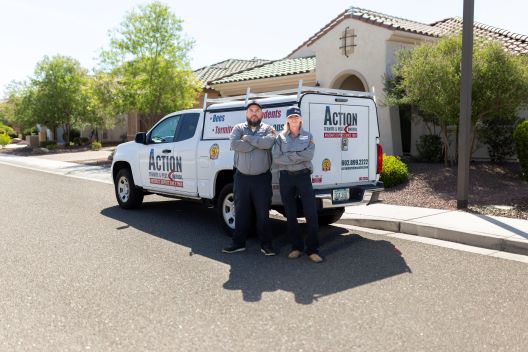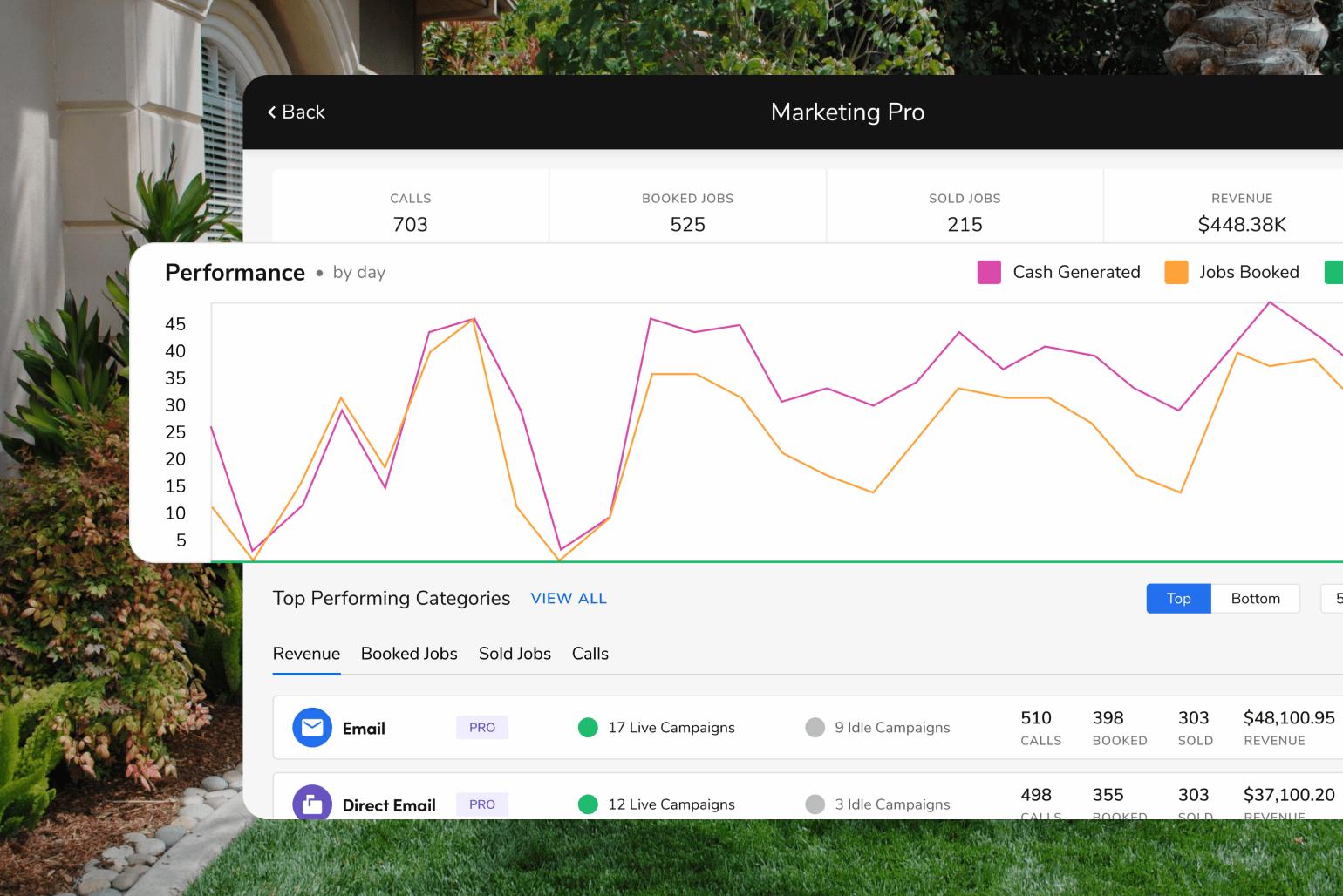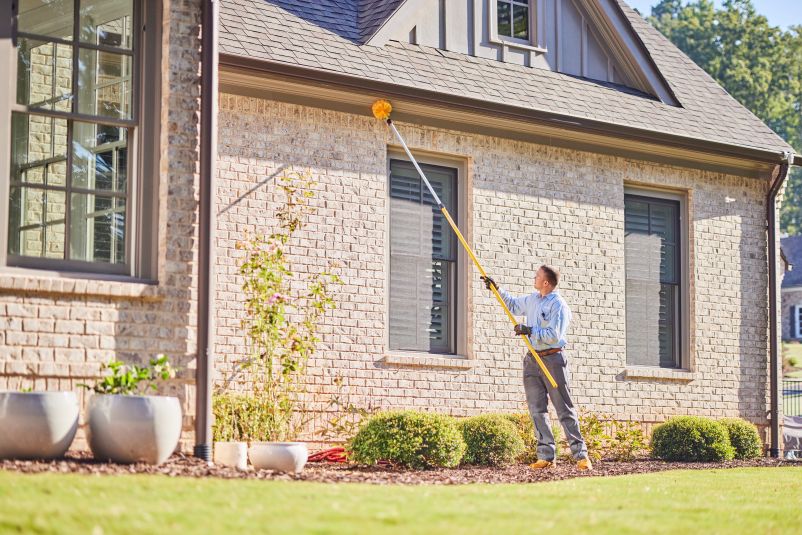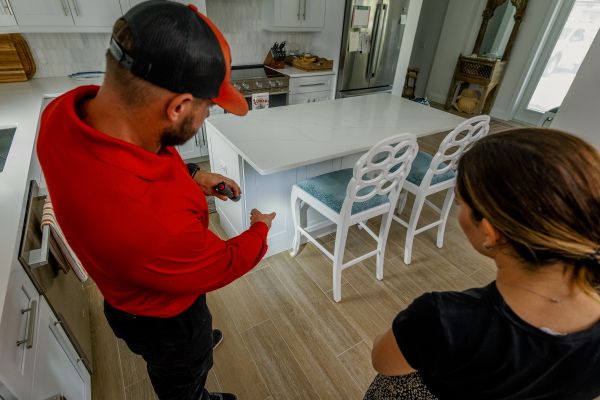How To Establish Pest Control Prices: A Guide For Businesses
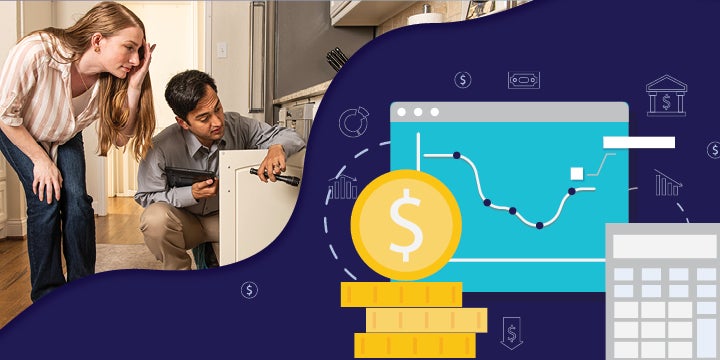
Are you thinking about getting into the professional extermination business?
If so, it can be a lucrative career choice. After all, nobody wants a bug infestation in their house. However, our best attempts to keep our homes clean and pest-free aren't always enough. Various insects can and do infiltrate homes, particularly those that are older or lack adequately sealed doors and windows.
When it comes to exterminating pests in your home, a mousetrap or a container of insect spray won't always suffice. When these products stop working, it's time to bring in the experts.
Professional pest treatment isn't cheap, of course. Hiring a pest control professional for a one-time appointment to exterminate termites can potentially cost hundreds of dollars.
Learning how to build your own pest control business can be daunting, but the process can be made simple and stress-free with the appropriate measures in place.
Today, we're going to help you sort out one of the most significant factors of starting your business: how to set pest control prices.
How Much Does Pest Control Cost?
You'll need to decide which services make the most sense to provide before launching a pest control business.
To begin, consider your current location and the most common bug problems there. Then, establish your business model.
Your potential clients have a few options for hiring a pest control service. They will typically hire you for a one-time or recurring service. The average cost of pest control for a single visit ranges from $250 to $600. Because you will have to investigate the problem and then give treatment in the same visit, this fee is substantially more than an ongoing visit.
However, there are situations when the full treatment cannot be completed in one session. If your client's pest control problem requires multiple treatments, the first visit may be less expensive — with a pest control cost between $150 and $300. Initially, you'll begin by assessing the situation during this visit. After you find the nest and the entrance point, you'll be able to provide an assessment of the scope of the problem.
Once you've established a strategy to eliminate pests from their property, you'll arrange follow-up visits which will most likely be less expensive. Quarterly pest control treatments cost an average of $100 to $300. In comparison, monthly pest control costs an average of $45 to $75.
Pest control costs vary widely depending on the sort of pest you’ll be exterminating. The cost of pest management for some of the most common pests found in homes varies. Please keep in mind that these are average pest control prices:
Ants: $100 - $500
Termites: $2,000 - $8,000
Bats: $200 - $650
Bed Bugs: $300 - $5,000
Lice: $50 - $200
Cockroaches: $100 - $400
Fleas: $75 - $400
Rodents: $150 - $500
Spiders: $100 - $200
Wasps: $100 - $1,300
Mosquitoes: $100 - $500
8 Factors That Affect Pest Control Prices
If someone's house is infested, they're going to need pest control services. While there are some over-the-counter solutions available, they should seek a pest control professional with years of experience to assist in eliminating the problem if their home is infested with termites, rodents, or ants. Otherwise, they may end up causing harm to their pets or family.
When establishing your pest control prices, there are several factors to consider:
1. Type of Service
Starting a pest control business gives you a lot of flexibility regarding the pest management services you provide and who you want to serve.
The following are some of the most common pest control firms and services:
General residential pest control: This sort of company caters to homeowners concerned about pest infestations in their houses. Ants, spiders, bees, and mice are all common pests.
Commercial pest management: Commercial pest management is comparable to domestic pest control, but it provides treatment alternatives on a larger scale. This sort of company could also concentrate on security measures for densely populated interior and external areas.
Termite control and extermination: Exterminating termites can be costly and challenging. However, it can be an extremely lucrative undertaking.
Fumigation: Filling interior areas with fumigants to smother bugs with gas is known as fumigation. Because this treatment might modify the physical structure of a building and create significant safety issues, more caution and training are necessary.
Modern pest control businesses may differentiate themselves by providing organic or environmentally friendly choices. More individuals are looking for safe, ecologically acceptable alternatives as worries about the usage of chemical agents and pesticides have risen. Organic pest management requires different training and supplies, but it might be highly successful depending on your target market.
To begin, consider your current location and the most common bug problems there.
For example, many Florida residents deal with ant problems all of the time. You have fire ants on the outside and sugar ants on the inside. They want to be inside your house when it rains, away from the water. When it's completely dry, they'll figure out how to seek water. You're always fighting them.
Do you live in a town with a lot of wood-framed houses? Termite treatment might be an excellent addition to your list of services.
You can include the following pest control services:
Baiting
Bed bugs
Lawn treatments
Fumigation services
Ticks and fleas
Rodent extermination and trapping
Termite prevention
Mosquito repellent
Treatments for attics and crawl spaces
Nests removal (e.g., bees, wasps, hornets)
Keep in mind that when the weather changes, so will the sorts of pests and the services required to control them.
During those periods of the year, you should consider adding particular pest control services.
In addition, any form of a natural weather disaster, such as earthquakes, fires, or floods, might result in specialized infestations.
Also, select if you want to focus on residential, business, or both services. Consider any contracts, one-time services, ongoing services, or bundle deals you may provide.
2. Frequency of Service
The frequency with which you'll require treatments is also a central determining element in calculating your charges. Is it possible to eliminate it in a single sweep? Or does it take longer and require repeated visits? For example, if you're removing rats outside, you may need to restock bait stations every couple of weeks.
There may also be services only available during certain times of the year. For instance, if you live in a chilly climate, rats will seek shelter indoors throughout the winter. You might provide a one-time seasonal sweep of a property to seal any susceptible areas, set traps, and inform the customer of any structural work that has to be done to guarantee the house is secure for the winter.
Perhaps you could give discounts on these services to your consumers. Consider the possibility of treating a home twice a year, once in the winter and once in the spring. Both procedures are optional, but they will go a long way toward preventing an infestation. If the customer chooses to have the summer treatment after finishing the winter treatment, you might give them a 10% discount.
Here are a few ideas to keep in mind when setting your pest control price:
Assessing the problem, such as where the pests are entering a home and dwelling once inside, takes time. A single visit usually costs between $300 and $550. What is the reason behind the exorbitant price?
An initial visit is the first of a series of visits. Like a one-time visit, this will necessitate some investigation to determine the nature of the pest problems, costing around $180.
A periodic visit might occur once a month, twice a month, or three times a month. How much does pest control cost for each type of periodic visit:
$40-$45 once a month
$50-$60 every two months
$100-$300 every three months
Specific pest control agreements, such as quarterly contracts, may provide free treatment if a problem arises between regularly planned visits.
3. Location
Another factor to consider when determining your pricing is the time it will take you to get to the location. You'd reasonably charge more for a service that's an hour away than one that's within your town's boundaries. Driving consumes gasoline and wears down your car, requiring more regular maintenance, oil changes, and tire replacements.
4. Type of Pests
Another factor to consider when pricing is the sort of bug you're dealing with. We do not recommend offering consumers "one size fits all" pricing plans. After all, you wouldn't charge the same price for fire ants as you would carpenter ants.
Furthermore, certain treatments may need a comprehensive assessment before determining a treatment plan. For example, termite treatment and bat infestations will necessitate an evaluation of the region before deciding on the best course of action. Consider providing a free consultation to your consumers so you can assess the infestation before charging them.
5. Type of Treatment
Your pest control treatment strategy might also influence how much it costs to get rid of bugs in a house or office.
Some treatments are inexpensive compared to others, but the pests may require numerous visits if you don't get rid of all of them initially.
More expensive treatments can be employed to totally remove the infestation in only one visit. Despite being pricier, they are often more successful. They will cost the client considerably less money in the long run than a less effective treatment strategy.
6. Size of Property
The size of the building you're treating is one of the first criteria that might influence how much you charge for your services. For example, you wouldn't charge the same for a basement in a single-family home as you would for a multi-story skyscraper.
Small houses with only a few rooms are often easier for pest control specialists to manage since they can quickly and efficiently address the infestation.
Larger homes, or ones with a lot of built-ins, may take longer to check and exterminate pests from, which means it will cost more because you will be spending more time at their home.
It's also beneficial if the pests are in an easy-to-reach location.
For example, rodents, such as mice and rats, can reside behind walls, making them considerably more difficult to eradicate than other sorts of infestations.
Take some time to consider how you want to price your products. Will it be via a story? Room by room? The simplest method is to calculate the square footage of the treated area. For example, you could want to think about tiering your pricing, like this:
Tier 1 for less than 2,500 square feet
Tier 2 for 2,500-5,000 square feet
Tier 3 is the price of 5,000 square feet or more
The breakeven pricing will be something to keep in mind while creating your tiers. Consider the amount of time and materials you'll need to complete the project and base your pricing on that.
7. Size of Infestation
Infestations that are larger and more deeply established will cost more than smaller infestations. Exceptionally large ones may require multiple treatments before the source of the problem is eradicated.
8. Overhead
Finally, you can't forget to factor overhead into your pest control prices. Office rent, office utilities, labor, marketing, equipment, insurance, and marketing expenses are all ongoing expenses. When the company is new, expect to spend a few hundred dollars on marketing each month. This sum can reach a thousand dollars or more every month when the enterprise has grown.
If you decide to hire on staff, you'll need to account for their wages:
A secretary will cost $10 to $15
Additional exterminators will most likely make $15 to $25 per hour.
A marketing specialist can cost $30,000 and $50,000 per year.
Depending on your location and the size of the building, your monthly rent would likely range from $600-$1,200. Office utilities are expected to be between $75 and $200 per month.
But, how much is pest control equipment going to cost you?
Your company requires trucks to carry the equipment and chemicals needed to drive pests away. When new, a single vehicle would set you back at least $20,000. Thousands of dollars will be spent on sprayers, bait guns, vacuums, safety equipment, and fogging equipment. A one-gallon foamer, for example, usually costs around $200. Typically, a one-gallon sprayer costs $250. A respirator will most likely set you back around $100.
Don't forget about the office supplies. To automate daily operations, you'll need a good laptop and printer, and field routing software like FieldRoutes!
How to Find the Best Pest Control Prices for Your Business
Determining how much you'll charge for your services is an essential aspect for your new firm — conduct market research in your region to obtain an idea of comparable pricing.
Many pest control companies employ a subscription model, in which customers pay a monthly or quarterly fee to get treatments. Consider how you'll manage recurring transactions if this is your objective. Do you require a website to accept payments quickly and securely? When you create a simple user experience, your chances of getting paid promptly and effectively when you issue an invoice rise.
When figuring out your pest control prices, you'll also have to consider your marketing and advertising strategies. How can potential clients find you and understand what you have to offer?
When creating your pest control prices, be sure to factor in:
Print advertising
Digital advertising
Search engine optimization (SEO) for local and organic results
Advertisements on the radio or television
Having a better understanding of your target audience or ideal consumer is also vital for successful marketing. You can accomplish this by studying the most prevalent pest management needs in your area, soliciting feedback from current clients, and offering follow-up information regarding expected results. Each marketing touchpoint is a chance to collect valuable data about your consumers' specific requirements.
By analyzing this data, you can find the perfect price point that gives you a competitive advantage without overextending yourself.
Cost Of Pest Control: Is It Worth It?
As you can see, many different factors affect the cost of pest control prices. Although establishing your own business might be intimidating, taking the plunge could lead to a rewarding career. You'll obtain an excellent set of professional abilities as you learn how to establish a pest control business, which you can use to grow your business and benefit others around you.
When it comes to critical choices, following a business blueprint will relieve you of worry and confusion. Always have an open mind while exploring new pest control ideas, tactics, and goals in your organization.
Thankfully, several tools like our pest control software that are available to you and can help you grow and scale your operations. With FieldRoutes, you can modernize your business operations with automation, scheduling, and optimization. Schedule a free demo today, and see how you can elevate your business!
